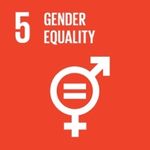QPE publications 2021: Launch Overview - the United Nations
←
→
Page content transcription
If your browser does not render page correctly, please read the page content below
QPE publications 2021:
Launch Overview
This document presents background and key messaging related to the three new Quality
Physical Education (QPE) publications which will be launched online in phases1:
• Making the case for inclusive Quality Physical Education policy development: a policy brief;
• How to influence the development of Quality Physical Education policy: a policy advocacy
toolkit for youth;
• The Quality Physical Education policy project: analysis of process, content and impact.
Highlights include a background on QPE, the QPE Policy Project, the benefits and costs of not
investing in QPE, a detailed presentation of the QPE Policy Package and of the new
1
The English version of the Policy Brief and Advocacy Toolkit will be launched first during Global Sports Week (1-5
February), followed by the French and Spanish versions of the same documents. The launch of the QPE Policy Analysis
publication, being technical in nature, will be launched last in accordance with a recommendation from UNESCO’s
publication board. A phased launch will maximise online imprints and “real world” traction by offering multiple
opportunities to promote the work and to engage international and regional audiences in the content of the publications. A
series of international and regional events have been identified as opportunities to associate the online launch of the
various versions of the publications, with plans to promote the full resource package (in all available languages) on the
International Day of Sport for Developent and Peace, 6 April 2021.publications, the platforms where these publications will be promoted and the hashtags that
will be use in social media platform around the launch of these documents.
What is QPE?
Contrary to traditional physical education programmes which take a “one size fits all” approach,
quality physical education is grounded in the equality of opportunity for all students to access
a well-balanced and inclusive curriculum.
QPE supports the acquisition of psychomotor, social and emotional skills which define self-
confident and resilient citizens. It also emphasizes the value of physical literacy as a key
developmental milestone contributing to body ownership, physical competency and enjoyment
in lifelong physical activity.
Why invest in QPE?
COVID-19 has spotlighted the value of good health and resilience (physical, mental, social and
economic). Almost a quarter of the world’s population have an underlying health condition
which increases their vunerability to the virus. Mental health issues have increased
exponentially during Coronavirus, particularly amongst youth, and physical inactivity can now
be considered as a parallel pandemic, contributing to 5 million premature deaths annually.
Participation in quality physical education programmes improves physical health, decreases
chronic mental health conditions and builds socio-emotional resilience. It also provides a high
impact/low cost gateway to lifelong participation in physical activity across the lifespan. It is for
these reasons, quality physical education represents a major component in UNESCO’s new
COVID recovery flagship “Fit for Life” which has been designed to respond to the immediate
physical and mental health effects of the current health pandemic.
2The QPE publications 2021
Background
The three new QPE publications are evidence-based and operationalize the findings of
UNESCO’s Quality Physical Education Policy Pilot which was implemented in four
countries (Fiji, Mexico, South Africa and Zambia) from 2016-2018. The new publications
complement the existing QPE resource package (see below) which was developed with a
compact of partners including the European Commission, the International Council of Sport
Science and Physical Education (ICSSPE), the International Olympic Committee (IOC),
Nike, the United Nations Development Programme (UNDP), the United Nations
International Children’s Emergency Fund (UNICEF) and the World Health Organization
(WHO).
3Guidelines Methodology Project website Infographic Video
The QPE Policy Pilot was deemed “one of the most remarkable and significant global
initiatives in physical education of the last century” by a team of independent evaluators
from the Institute for Sport and Development in South Africa. Using the QPE resource
package, national stakeholders (from policy to practice) were able to make substantive
revisions to PE policy frameworks and delivery systems.
UNESCO and partners will promote the QPE Policy Pilot findings, good practice and
lessons learned to tiered stakeholder groups via the new publications. Each of the new
publications also builds on the content and messaging of the existing QPE policy package
(products referenced above).
The publications
- Making the case for inclusive Quality Physical Education policy
development: a policy brief: The evidence-based policy brief presents the
case for investment in quality physical education (QPE). Content draws directly
on findings from in-country interventions which demonstrate the value of inter-
sectoral partnerships in QPE policy development and the delivery of low
cost/high impact QPE programming which stands to accelerate post-COVID
recovery efforts. A series of practical recommendations are included for public
and private stakeholders in the sport-education ecosystems, alongside
resources to support the implementation of recommendations.
Target audience: Policy-makers, sport movement, institutions and private
companies with stakes in sport, education and/or physical activity sectors.
- How to influence the development of Quality Physical Education policy: a
policy advocacy toolkit for youth: The toolkit is designed to support young
people and youth organizations to advocate for and effectively contribute to the
development of quality physical education policy. It offers general principles for
successful policy advocacy that can be adapted based on what best suits
different national contexts and policy development processes. The sections
include an evidence-based rationale for youth policy engagement, tested
techniques to inspire impact-oriented advocacy strategies and practical
checklists to navigate physical education (PE) policy development processes.
Target audience: Youth activists, youth organizations, grassroots sport and/or
physical education enthusiasts, educators.
- The Quality Physical Education policy project: analysis of process,
content and impact: The Policy Project Analysis is a technical report that
includes the QPE project’s background and rationale, the results of the policy
4revision processes in the four pilot country contexts, lessons learnt in-country
and a global synthesis of national level findings. The national level and
comparative analysis were undertaken according to the project’s results
framework and theory of change model which aligns with the 8 thematic areas
of the Quality Physical Education Guidelines and is annexed to the QPE Policy
Project Analysis. The report concludes with a series of practical
recommendations to enrich and scale the policy revision project in additional
country contexts.
Target audience: Academics, policy-makers, practitioners in sport and/or
physical education.
Dissemination platforms
Facebook LinkedIN
Twitter UNESCO’s website
Instagram Partner websites
QPE Hashtags
#QPE4life
#Fit4Life
Promotional opportunites
International Date Regional Date
events events
Global Sports Week February 1-5 African January 16 -
Championship of 7 February
Nations
International Women’s March 8 Consejo March
Day Iberoamericano del
Deporte (CID)
General Assembly
International Day for March 21 Afrobasket August 24 -
the Elimination of September 5
Racial Discrimination
International March 22-23
Conference on
5Advances in Physical
Education and Sports
in Dubai
International Day of April 6
Sport for Development
and Peace
6You can also read

























































